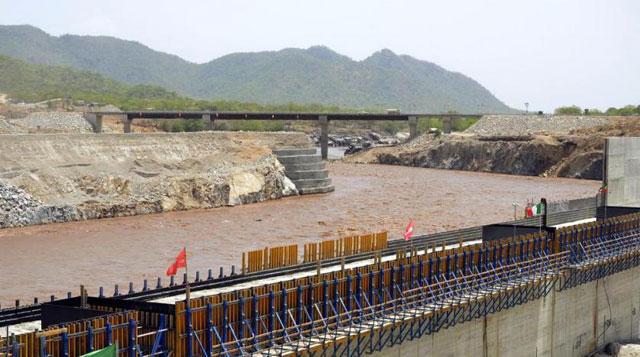- International News
- Web-2020-07-08 | 10:12 pm

Violence broke out last week in the Ethiopian capital Addis Ababa and the surrounding Oromia region following the shooting death of Hachalu Hundessa, a popular singer from the Oromo ethnic group, Ethiopia's largest.
More than 160 people died in inter-ethnic killings and in clashes between protesters and security forces, according to the latest official toll provided over the weekend.
Abiy said last week that Hachalu's killing and the violence that ensued were part of a plot to sow unrest in Ethiopia, without identifying who he thought was involved.
On Tuesday he went a step further, saying it was specifically intended to throw Ethiopia's plans for the Grand Ethiopian Renaissance Dam off course.
"The desire of the breaking news is to make the Ethiopian government take its eye off the dam," Abiy said during a question-and-answer session with lawmakers, without giving evidence to support the claim.
Ethiopia sees the Grand Ethiopian Renaissance Dam as essential to its electrification and development, while Egypt and Sudan worry it will restrict access to vital Nile waters.
Addis Ababa has long intended to begin filling the dam's reservoir this month — in the middle of its rainy season — while Cairo and Khartoum are pushing for the three countries to first reach an agreement on how it will be operated.
Talks between the three nations resumed last week.
Ethiopian officials have not publicised the exact day they intend to start filling the dam.
But Abiy on Tuesday reiterated Ethiopia's position that the filling process is an essential element of the dam's construction.
"If Ethiopia doesn’t fill the dam, it means Ethiopia has agreed to demolish the dam,” he said.
"On other points we can reach an agreement slowly over time, but for the filling of the dam we can reach and sign an agreement this year.”
Ethiopia ‘not Syria, Libya’
Abiy, last year’s Nobel Peace Prize winner, also criticised politicians who he suggested were trying to profit from Hachalu’s killing to undermine his government.
"You can’t become a government by destroying a government by destroying the country, by sowing ethnic and religious chaos,” he said.
"If Ethiopia becomes Syria, if Ethiopia becomes Libya, the loss is for everybody.”
A number of high-profile opposition politicians have been arrested in Ethiopia in the wake of Hachalu’s killing.
Some of them, including former media mogul Jawar Mohammed, have accused Abiy, the country’s first Oromo prime minister, of failing to sufficiently champion Oromo interests after years of anti-government protests swept him to power in 2018.
Abiy defended his Oromo credentials on Tuesday. "All my life I’ve struggled for the Oromo people,” he said.
"The Oromo people are free now. What we need now is development.”













